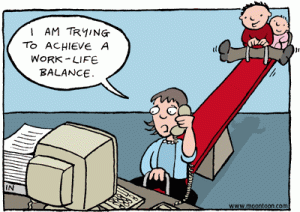James Zappen a Professor of Communications and Media at the University of Missouri, wrote a book titled The Rebirth of Dialogue: Bakhtin, Socrates, and the Rhetorical Tradition.
“Dialogue is not simply a way of persuading others to accept our ideas, but a way of holding ourselves, and others, accountable for all of our thoughts, words, and actions. In supporting this premise, Bakhtin challenges the traditions of argument and persuasion handed down from Plato and Aristotle, and he offers, as an alternative, a dialogical rhetoric that restructures the traditional relationship between speakers and listeners, writers and readers, as a mutual testing, contesting, and creating of ideas. . . . Bakhtin’s dialogical rhetoric is not restricted to oral discourse, but is possible in any medium, including written, graphic, and digital.” – James Zappen,”
In this quote explaining Dialogical Rhetoric, it gave me a complicated thought process of the way people are held accountable for not only our oral discourse, but for written, graphic and digital disbursements as well. Traditional communication efforts have developed since the Plato and Aristotle age. In the past, people were only held accountable for thoughts, words, and actions. Times have now changed to include our new forms of communication, which is not limited to but also includes, written, graphic, and digital materials.
I chose to analyze a blog written by Jason Abbruzzese. Abbruzzese writes for Mashable.com. It is obvious by Abbruzzess’ use of hypertext and references that dialogical rhetoric is not being restricted to only oral discourse. This blog demonstrates how we are all held accountable for what we do or say in life whether it is written or verbal. Not only does he include references and hypertext links to prove his factual content. He also, includes these hypertext links to allow readers to easily navigate throughout his blog. Pictures are also posted along each blog to catch the readers eye. Below is the picture that caught my eye which prompted me to read his blog. As I read in chapter one of, “Letting go of the words” written by Janice (Ginny) Redish, “People come for the content”, That is exactly what made me click on this blog. I came to find information I hoped this article included to help me in my research study.
One thing not apparent was Abbruzzeses’ way of incorporating his site visitors. I am not for sure if this is all done on the main site of Mashable.com, but it would be very economical for each individual blog writer to include a way for site visitors to have accesses to leave comments and become followers. All people should have a voice. Per chapter two of, “Letting go of the Words” Listing groups of site visitors is one way to ask,”How do people identify themselves with regard to my web content?” However, I did notice a followers and comment area on the page. I was not able to click this area to leave a comment or add myself as a follower.
According to, Journalism Next by Mark Briggs, “Journalism needs You.” That to me say’s that we the people should have a say in all things we do. Yes, we are to follow guidelines of the rich enhancements our world has come to, but without a voice. Who are we?


